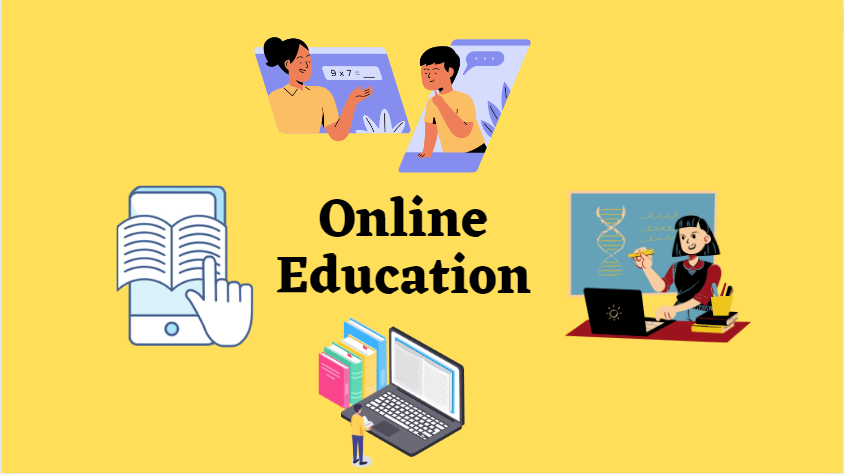
Introduction:
In today’s fast-paced and connected world, education is changing rapidly. Online learning has revolutionized how we learn, breaking barriers and creating new oppurtunities for students all over the world. This article explore the exciting world of online education, discussing its benefits, challenges, and the incredeble potential it has for shaping the future of learning.
Why Online Education Is Important?
- “Learning Unleashed: The Digital Classroom Revolution” In this section, we talk about how online education is transforming learning. We highlight how it empowers learners by giving them access to quality education whenever and wherever they want. We discuss virtual classrooms, interactive content, and personalized learning, showing how online education is changing the way we think.
- “Breaking Barriers, Building Connections: The Global Classroom” Online education has removed physical boundaries, allowing students to connect and collaborate with peers from different countries and cultures. This section focuses on the global impact of online education, emphasising how it promotes cultural exchange, global citizenship, and understanding among different cultures.
- “Mastering Flexibility: Education that Fits Your Life” One of the best things about online education is its flexibility. This section explores how online learning makes education more accessible to non-traditional learners, such as working professionals, parents, and people with busy schedules. We discuss self-paced learning, adaptive curricula, and how online education helps people balance work, life, and education seamlessly.
- “From Theory to Practice: Bridging the Skills Gap” Online education is a powerful tool for bridging the skills gap and preparing learners for the job market. In this section, we explain how online platforms offer a wide range of courses and programmes designed to enhance technical skills, foster innovation, and provide the expertise needed in today’s dynamic workforce.
- “Empowering Lifelong Learning: Education Beyond the Classroom” Online education goes beyond traditional academic institutions. In this section, we explore the world of online courses, tutorials, and resources that enable individuals to pursue lifelong learning. We showcase how online education empowers individuals to pursue their passions, learn new hobbies, and continuously expand their knowledge.
Demerits Of Online Education
- Limited Social Interaction: One downside of online education is that it doesn’t offer as many chances to interact with others as traditional classroom do. Students miss out on lively discussions, face-to-face conversations, and working together with classmates. This lac of social interaction can lead to feeling lonely and make it harder to develope important social skills.
- Self-Motivation and Discipline Challenges: Online learning required students to motivate themselves and stay discipline. Without a physical classroom and regular interactions with teachers and peers, some students might find it tough to stay focused, manage their time well, and meet deadlines. Procrastination and lack of self-discipline can be common problems for online learners.
- Technical Issues and Dependence on Technology: Online education relies heavily on technology and the internet. Technical problems like internet outages, computer issues, or software glitches can disrupts learning and frustrate students. Plus, not everyone has access to reliable internet or the right devices, which can limit their ability to fully participate in online classes.
- Limited Hands-On and Practical Learning: Some subjects, like science experiments, art projects, or hands-on skills training, are hard to change in an online setting. Online education often focuses more on theory and may not provide as many opportunities for hands-on learning. This limitation can affect the development of certain skills and limit the depth of understanding in certain subjects.
- Potential for Distractions and Lack of Focus: Learning from home or other non-traditional environments can expose students to various distractions. Things like family members, pets, or household chores can make it difficult to concentrate on online coursework. Distractions from social media, online entertainment, or personal responsibilities can also get in the way of learning and decrease productivity.
Conclusion
Remember, not all of these drawbacks apply to every person or situation. Many online education programs and platforms try to address these challenges through virtual collaborations, interactive features, and support systems to help students stay engaged and succeed. Online education is revolutionizing the field of learning, changing traditional education models, and creating endless possibilities for students worldwide. As technology advancement and connectivity improves, online education will play an increasingly important role in shaping the future of learning. With its convenience, flexibility, and global reach, online education has the potential to make education accessible to everyone and empower learners from all walks of life.